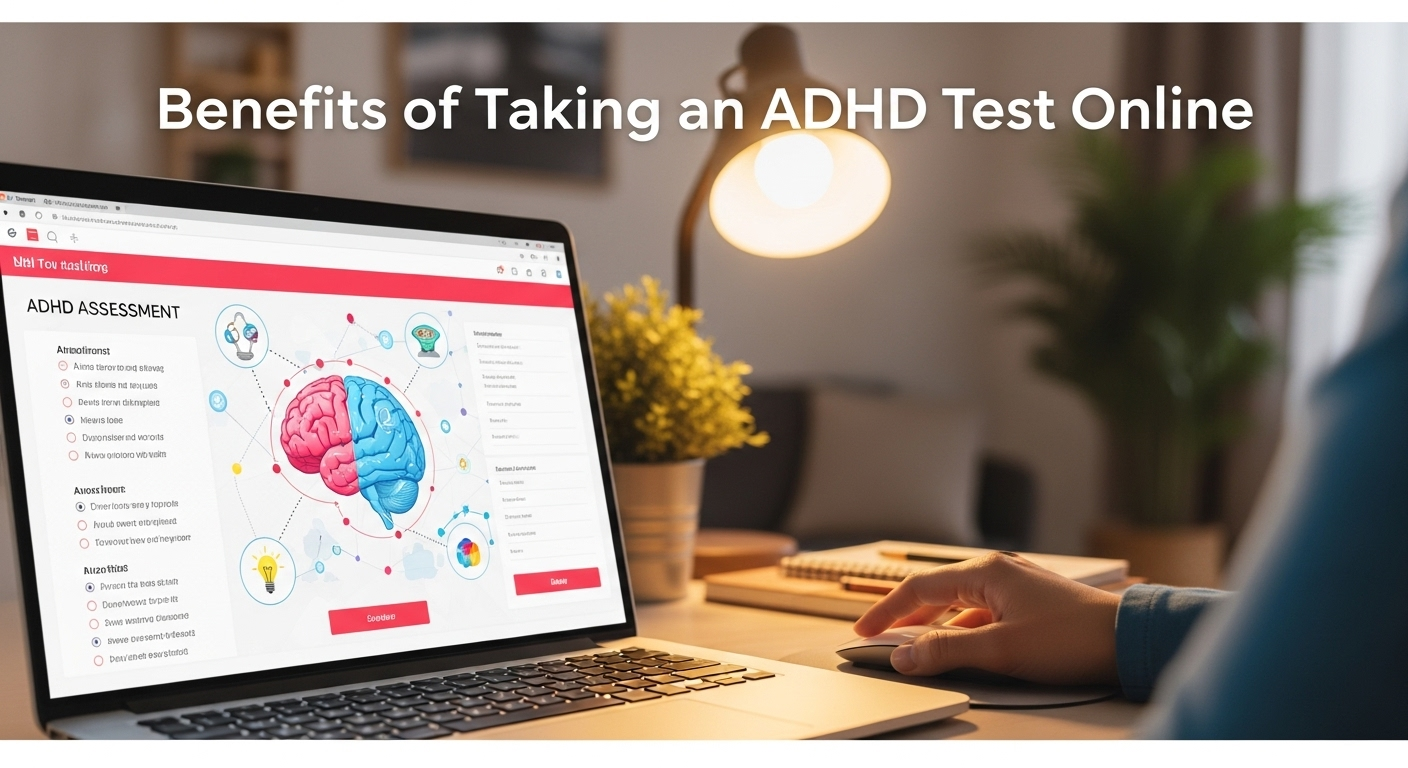When it comes to mental health, people often come across two common terms—screening test and full diagnosis. While both are important in identifying mental health conditions, they serve very different purposes. Understanding the difference can help you know what to expect if you are considering taking an online mental health test or planning to consult a professional.
In this blog, we will explore what a screening test is, what a full diagnosis means, and how they differ in terms of purpose, process, accuracy, and next steps.
An online ADHD test is typically a screening questionnaire designed to evaluate whether your symptoms align with those commonly seen in Attention Deficit Hyperactivity Disorder. Unlike a full diagnosis by a psychiatrist or psychologist, these tests are not meant to diagnose ADHD officially. Instead, they are used as an initial step to help people identify whether their symptoms might be consistent with ADHD.
These tests are usually:
Think of them as a pre-screening tool. Just like a blood pressure monitor at a pharmacy gives you an idea about your health but does not replace a doctor’s examination, an online ADHD test gives you direction but not confirmation.
The process of an online ADHD test is relatively simple and straightforward.
You are typically asked anywhere from 15 to 50 questions, depending on the platform. Questions often include:
You respond using options like:
These answers are then scored to identify patterns of ADHD-related behavior.
Once you complete the test, you immediately receive a score or result. This could be:
Some tests also break down results into subcategories, such as:
Most reliable platforms will clearly state that the test is not a diagnosis and encourage you to consult a mental health professional for confirmation.
When you decide to take an ADHD test online, here are some things you should be prepared for:
Most online ADHD tests take only 5–15 minutes to complete. You can take them from the comfort of your home without any appointment or payment.
These tests make you reflect on your daily habits and challenges. Many people realize patterns they hadn’t consciously acknowledged before, such as how often they lose items or struggle to complete tasks.
Unlike sitting in a doctor’s office, online tests provide a private way to assess symptoms. However, always make sure the website you use is reputable and does not misuse your personal data.
Unlike scheduling a professional assessment that may take weeks, online ADHD tests provide instant results.
The most important thing you gain is clarity about whether you should seek professional help.
While online ADHD tests are helpful, it’s crucial to understand their limitations:

| Aspect | Online ADHD Test | Professional Diagnosis |
|---|---|---|
| Time | 5–15 minutes | Multiple sessions over weeks |
| Cost | Free or low-cost | High (depends on region/doctor) |
| Accuracy | Moderate (screening only) | High (comprehensive evaluation) |
| Method | Questionnaire only | Interviews, medical history, psychological tests |
| Outcome | Suggestion/likelihood | Official diagnosis & treatment plan |
If your online test suggests moderate to high likelihood of ADHD, scheduling a professional consultation is strongly recommended.
Taking an online test is just Step 1. Depending on your results, here’s what you should do:
Professionals may conduct:
Not all online tests are created equal. Here’s how to choose a good one:
Yes, many platforms have different versions of ADHD tests depending on age group.
Both versions are designed around the same diagnostic framework, but the questions are tailored to life stage differences.
You might wonder, “If it’s not a diagnosis, why bother?”
The answer is awareness and accessibility. Many people spend years struggling with poor concentration, impulsivity, or underachievement without realizing ADHD could be the reason. An online test provides a non-intimidating first step toward identifying the issue.
For example:
Online ADHD tests are helpful screening tools, but they are not diagnostic tools. They work best as a starting point—giving you clarity, awareness, and direction. If your results suggest ADHD, the next essential step is seeking a professional evaluation.
With proper diagnosis and treatment—whether through therapy, medication, or lifestyle adjustments—ADHD can be effectively managed, allowing individuals to live productive and fulfilling lives.

Take a Quick, Private Assessment to Check in With Your Mental Health.
Take Assessment